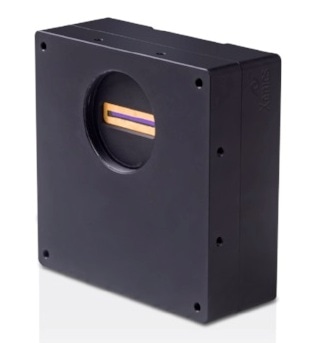Xenics, Europe's leading developer and manufacturer of advanced infrared sensors, cameras and customized imaging solutions from the SWIR to the LWIR realm, will be exhibiting in the Automate show. The latest, as well as upcoming cameras from Xenics will all be available during the entire duration of the show. This year, the showcase is focused on industrial markets looking for cost efficient yet effective cameras for machine vision applications. There is also an emphasis placed on high performance imagers that are unique to the market.
Xenics exhibits in booth 6173 at the McCormick Place.

Heightened performance attributes to meet today’s imaging standards
Fuelled by the emergence of new technologies and its shift to industry 4.0, the modern industrial market sees a large increase in applications with demanding requirements. In order to better provide value-oriented products to its customers, Xenics continues to innovate and improve its line-up of ready-to-use cameras. For increased performance in the long-wave infrared spectrum of imagers, Xenics introduced the longwave “plus” series in Q4 last year. Comprising the Gobi+ & XTM+, these new long-wave imagers bring increased frame rates of 60 Hz, as well as low 50 mK NETD detector noise. The Gobi+ will be available on display during the Automate show.
In recent years, Xenics has invested significantly in its short-wave sensors (which it produces independently). Improving production processes, such as reviewing processing techniques and using modernized equipment has greatly benefited the quality of its imagers. One such case is the announcement of a significantly improved dark current performance to its short-wave portfolio of cameras in 2018. Even so, there remain SWIR applications that require notably higher performances. Xenics turns to its new and upcoming products to further address this sector of the industrial market.
Manx series - the new standard for high-performance line-scan imaging
Returning from its earlier showcase at the SPIE Photonics West event, the new Manx line-scan camera presents line-scan SWIR imaging at its finest. Addressing a need for high speed yet low noise imaging in the short-wave infrared spectrum (900 to 1700 nm), the Manx camera provides line rates of up to 390 kHz with 4 different gain modes available, at a read noise of 380 e− in the highest gain setting. Offered in three resolutions of 512, 1024, or 2048 square pixels, the Manx is suitable for machine vision or process control applications. All this is delivered via the CoaXPress interface to ensure fast, reliable streaming of high-quality line-scan images.